George Orwell - Animal Farm (Audio Book) (Perfect Narration Voice!)
Animal Farm is an allegorical novella by George Orwell, first published in England on 17 August 1945. The book tells the story of a group of farm animals who rebel against their human farmer, hoping to create a society where the animals can be equal, free, and happy. Ultimately, however, the rebellion is betrayed, and the farm ends up in a state as bad as it was before, under the dictatorship of a pig named Napoleon.
According to Orwell, the fable reflects events leading up to the Russian Revolution of 1917 and then on into the Stalinist era of the Soviet Union. Orwell, a democratic socialist, was a critic of Joseph Stalin and hostile to Moscow-directed Stalinism, an attitude that was critically shaped by his experiences during the Spanish Civil War. The Soviet Union had become a brutal dictatorship built upon a cult of personality and enforced by a reign of terror. In a letter to Yvonne Davet, Orwell described Animal Farm as a satirical tale against Stalin ("un conte satirique contre Staline"), and in his essay "Why I Write" (1946), wrote that Animal Farm was the first book in which he tried, with full consciousness of what he was doing, "to fuse political purpose and artistic purpose into one whole".
The original title was Animal Farm: A Fairy Story, but U.S. publishers dropped the subtitle when it was published in 1946, and only one of the translations during Orwell's lifetime kept it. Other titular variations include subtitles like "A Satire" and "A Contemporary Satire". Orwell suggested the title Union des républiques socialistes animales for the French translation, which abbreviates to URSA, the Latin word for "bear", a symbol of Russia. It also played on the French name of the Soviet Union, Union des républiques socialistes soviétiques.
Orwell wrote the book between November 1943 and February 1944, when the United Kingdom was in its wartime alliance with the Soviet Union against Nazi Germany, and the British intelligentsia held Stalin in high esteem, a phenomenon Orwell hated.
Characters
Pigs
Old Major – An aged prize Middle White boar provides the inspiration that fuels the rebellion. He is also called Willingdon Beauty when showing. He is an allegorical combination of Karl Marx, one of the creators of communism, and Vladimir Lenin, the communist leader of the Russian Revolution and the early Soviet nation, in that he draws up the principles of the revolution. His skull being put on revered public display recalls Lenin, whose embalmed body was put on display.[16] By the end of the book, the skull is reburied.
Napoleon – "A large, rather fierce-looking Berkshire boar, the only Berkshire on the farm, not much of a talker, but with a reputation for getting his own way". An allegory of Joseph Stalin,[16] Napoleon is the leader of Animal Farm.
Snowball – Napoleon's rival and original head of the farm after Jones' overthrow. His life parallels that of Leon Trotsky, but may also combine elements from Lenin.
Squealer – A small, white, fat porker who serves as Napoleon's second-in-command and minister of propaganda, holding a position similar to that of Vyacheslav Molotov.
Minimus – A poetic pig who writes the second and third national anthems of Animal Farm after the singing of "Beasts of England" is banned. Rodden compares him to the poet Vladimir Mayakovsky.
The piglets – Hinted to be the children of Napoleon and are the first generation of animals subjugated to his idea of animal inequality.
The young pigs – Four pigs who complain about Napoleon's takeover of the farm but are quickly silenced and later executed.
Pinkeye – A minor pig who is mentioned only once; he is the taste tester that samples Napoleon's food to make sure it is not poisoned, in response to rumours about an assassination attempt on Napoleon.
Humans
Mr. Jones – A heavy drinker who is the original owner of Manor Farm, a farm in disrepair with farmhands who often loaf on the job. He is an allegory of Russian Tsar Nicholas II, who abdicated following the February Revolution of 1917 and was murdered, along with the rest of his family, by the Bolsheviks on 17 July 1918. The animals revolt after Jones drinks so much he does not care for them.
Mr. Frederick – The tough owner of Pinchfield Farm, a small but well-kept neighbouring farm, who briefly enters into an alliance with Napoleon.
Mr. Pilkington – The easy-going but crafty and well-to-do owner of Foxwood Farm, a large neighbouring farm overgrown with weeds.
Mr. Whymper – A man hired by Napoleon to act as the liaison between Animal Farm and human society.
Equines
Boxer – A loyal, kind, dedicated, extremely strong, hard-working, and respectable cart-horse.
Mollie – A self-centred, self-indulgent, and vain young white mare.
Clover – A gentle, caring mare, who shows concern especially for Boxer.
Benjamin – A donkey, one of the oldest, wisest animals on the farm.
-
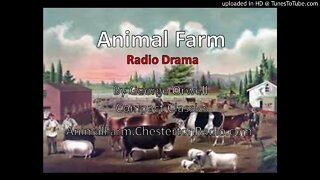 15:25
15:25
Chesterton Radio
3 years ago $0.03 earnedAnimal Farm - George Orwell - Compact Classics
1441 -
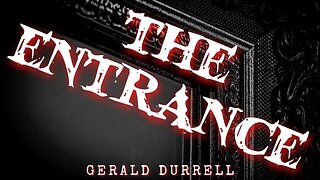 2:23:48
2:23:48
Classic Ghost Stories on Rumble
1 year agoThe Entrance by Gerald Durrell #audiobook #horror
18 -
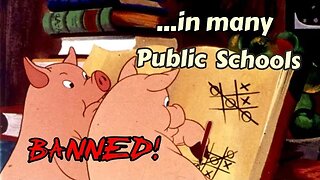 2:00:05
2:00:05
Roxana's Creations
1 year agoGeorge Orwell's "Animal Farm" FULL MOVIE (Discussion Points in Description)
745 -
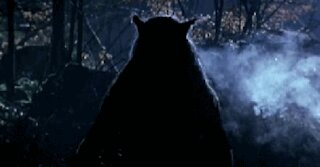 37:31
37:31
DwelleroftheDark
3 years ago $0.03 earned"The Hound" By H. P. Lovecraft (Narrated By Jeffrey LeBlanc)
7.49K -
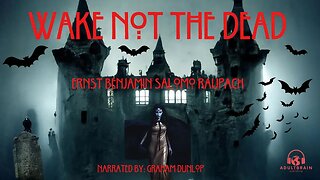 1:10:05
1:10:05
AdultBrain Audiobook Publishing. Bringing Rare and Forgotten Books to Audio for the World
1 year agoWake Not The Dead!, Ernst Benjamin Salomo Raupach, Full Audiobook. Brunhilda under the full moon.
127 -
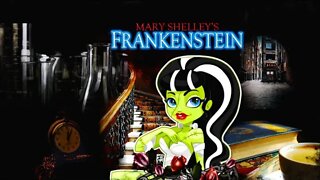 5:07
5:07
TWTGContent
1 year agoFrankenstein narrated by James Gray written by Mary Shelley | not the young frankenstein audiobook
155 -
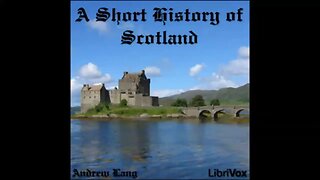 8:25:19
8:25:19
Audiobook Heaven
7 months agoA Short History of Scotland by Andrew Lang - FULL AUDIOBOOK
433 -
 3:08:00
3:08:00
BookwormsAudiobooks
1 year agoAnimal Farm - George Orwell (Full Audiobook)
19 -
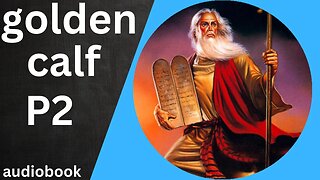 6:00:09
6:00:09
bookishears
8 months agogolden calf part 2 | golden calf audiobook | bookishears
61 -
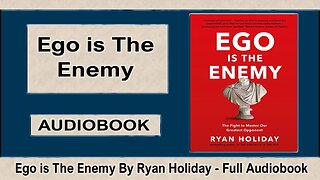 5:33:57
5:33:57
Jason Cain
11 months agoEgo is The Enemy | Full Audiobook
193